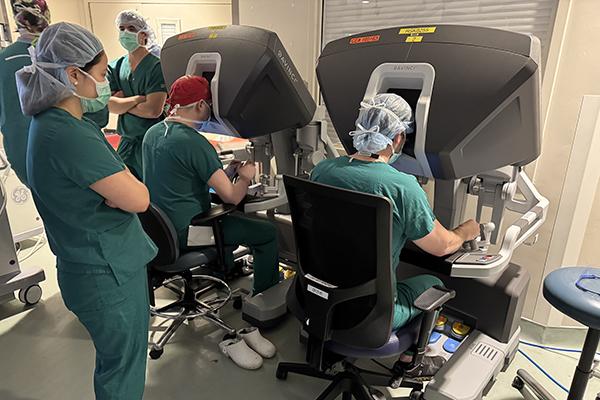
Robots have been a fixture in some operating rooms for decades. Recently, the evolution of robot-assisted surgery was advanced with the advent of robot-assisted anterior lumbar interbody fusion (ALIF).
In February 2025, Duke became one of the few hospitals to perform a robot-assisted ALIF. The spine procedure is minimally invasive and uses a front approach to treat spondylolisthesis -- a condition where one vertebra slips forward.
ALIF has long been used as an intervention for a wide range of conditions affecting the lumbar spine. The procedure is very effective, with successful fusion rates exceeding 90 percent. However, it can be associated with adverse effects such as significant blood loss and potential injury to surrounding structures.
Robot-assisted ALIF, by contrast, is minimally invasive, leading to shorter recoveries.
“The robot enhances precision in accessing the retroperitoneal space,” says Duke neurosurgeon Muhammad Abd-El-Barr, MD PhD, who collaborated with surgical oncologist Sabino Zani, MD, to perform the surgery, “so there is minimal tissue disruption and no need for a long incision,” he says.
“Robot-assisted surgery is the pinnacle of minimally invasive surgery, leading to less pain and shorter recoveries," added Dr. Zani.
The patient had had debilitating back and leg pain and had already tried various conservative treatments, which had not resolved his discomfort. Drs. Abd-El-Barr and Zani partnered to remove the damaged disc and place an interbody cage.
Dr. Abd-El-Barr sees increased use of the robot in spine surgery in the future. “I’m excited to see the different applications we can find for different robotic systems to help patients with a wide variety of neurological, spine and nervous conditions,” he says.